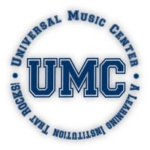Show Notes
Academic success starts with a strong vocabulary. Researchers since the 1920s have studied the impact of vocabulary on child development and found that the more words young children know, the easier they find learning to read and understand complex concepts. (If you want a full scholarly breakdown, check out this paper by Melanie Blocker at the University of Northern Iowa.
Speech therapists love music
Mikee Larrazabal, a speech pathologist at Better Speech, outlines the numerous benefits of music for speech therapists:
- Singing helps children develop rhythm, pronunciation, and vocabulary.
- Children are more excited to learn when music is involved.
- Music acts like “physical exercise” for the brain.
- Music helps children build their memory.
This last point is critical. According to Dr. Anne Fabiny at Harvard University, “Listening to and performing music reactivates areas of the brain associated with memory, reasoning, speech, emotion, and reward. Two recent studies—one in the United States and the other in Japan—found that music doesn’t just help us retrieve stored memories, it also helps us lay down new ones.”
Use music to improve your child’s vocabulary
In this episode, Mike talked about singing songs with real words to improve your child’s vocabulary, and making up songs to familiar tunes to teach new words. Here are a few other way you can use music, courtesy of Speech & Language at Home:
- Sing a duet with your child where they “fill in the blank.” For example: You sing “Old MacDonald had a –” and your child fills in the last part. You can point to things that you want your child to fill in to help them connect the new word with its meaning.
- Sing songs with movement, whether it’s “If you’re happy and you know it, clap your hands” or “The wheels on the bus.” This is a great outlet for young energy and helps children understand more abstract concepts.
Our instructors at Universal Music Center have extensive experience in music education and child development. Give your child an academic head start by signing up for lessons.
Episode Transcript
Hello and welcome to “Music for Life Skills.” My name is Mike Arturi and I am the founder and executive director of Universal Music Center, and we are Red Wing Minnesota’s original music education organization. And today we’re going to be talking about vocabulary, and how to help your children improve and increase their vocabulary.
Today’s Topic: Improving Vocabulary
Now all we need to do for this is to pick out some easy, recognizable songs. These are a great way to—go to, like, campfire type songs, or nursery rhymes. The important part, though, in choosing this material, is to pick songs or lyrics or rhymes or limericks that have actual words in them, okay? So you don’t want to have “itsy bitsy” or “eenie weenie,” you know, those kinds of words. We want lyrics that have actual words in them so that your child can say those words and increase their vocabulary by singing those words.
Now something you can do is just have them learn these little lyrics or these little limericks or nursery rhymes—that’s going to help great—but you can also take these simple little songs and put your own lyrics to them.
We’re going to use the song “I’m a Little Teapot” as an example. And if you’ve never heard this, it’s been around for ages and it goes, “I’m a little teapot, short and stout.” So my words go:
I’m a happy student,
Smart and strong,
I’m happy learning
All day long
I learn about words
And spelling too,
Let me show you now
What I can do.
So there’s an idea.
Here’s why this works. Let’s think about music for advertising and jingles, okay? We all know what a jingle is: that’s music attached to an advertisement. We’ve all been to Menard’s, right? So sing it along with me:
You save big money
You save big money
When you shop Menard’s.
Right? The whole reason that they do this for jingles is because the music and this little melody gets you to remember what their product is. That’s the power of the jingle.
For more lessons like this, don’t forget to check out our back catalog. And check out Universal Music Center at universalmusiccenter.org if you’re interested in learning more about our programs or taking lessons here at Universal Music Center. Get ahold of us and we’d be looking forward to hearing from you.



